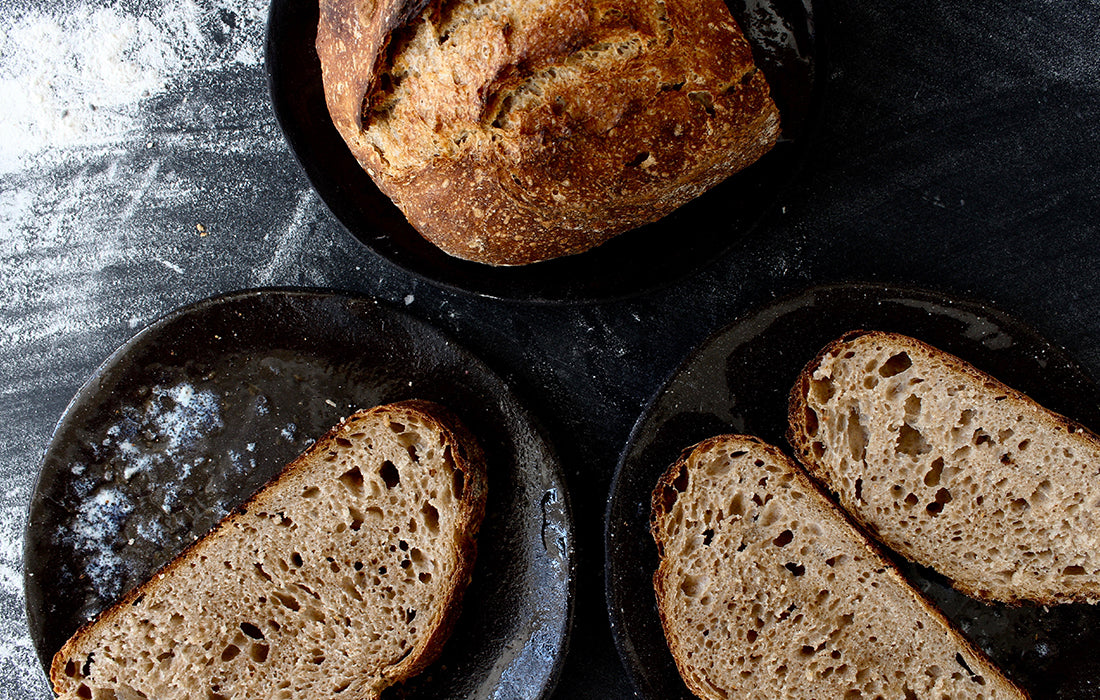Welcome back to another edition of 3 question Friday! Every week our head nutritionist Ben answers 3 of his favourite health questions that you’ve been sending in.
Congratulations to Beth, Will, and Maddison who all won a $20 gift vouchers just for asking Ben a question. You can always ask Ben a question at ben@13seeds.com.au
- Beth wanted to know “What are your go to gut health products?”
- Will was wondering “Which type of bread Is the healthiest?”
- Maddison was curious “What are your vegan recommendations for protein?
1. The 'Go To' Health Products.
Why do we need gut health products? Well, the truth is many people actually don’t need any gut health supplements and just by eating a healthy diet and living a healthy lifestyle you can support your gut health.
However, a lot of people may suffer from intestinal permeability (aka leaky gut) and other inflammatory gut disorders (eg. Crohn's disease or ulcerative colitis). Intestinal permeability can result in the damage of our gut lining through these little things called tight junctions that separate the gut from the rest of our body (1).
If we are exposed to toxins or consume an unhealthy diet this can cause inflammation in the rest of the body by seeping through these gap junctions causing a plethora of problems (eg. pain, fatigue). So, the first thing to do is to stick to a healthy diet that includes lots of fresh fruit and veggies, nuts, seeds and whole-grains that contain fibre that is anti-inflammatory in the gut (2).
There are some supplements that may help to repair or tighten these gap junctions such as glutamine, zinc, vitamin D and probiotics. However, it’s best to talk to your health professional or ask Ben about these supplements as there are many things to consider (3, 4, 5, 6).
2. The Healthiest type of bread
Who doesn’t love bread! There are so many breads out there now and it can be difficult to know which one to choose!
In the past our breads were made with whole-grains that contained the entire grain: the bran (outer layer), endosperm (starchy middle layer) and germ (nutrient rich inner part) that’s are packed full of vitamins, minerals, protein and healthy fats. As time has gone on, we have refined that grain to make it sweeter and tastier (aka white bread in the supermarket).
So, which one should you choose?
-
White bread
- Very high GI (high in sugar) has low nutritional value.
-
Multigrain
- Uses white flour, and may contain a few grains but is still probably high GI (high in sugar)
-
Wholemeal
- A better choice than white, but still higher GI
-
Wholegrain
- contains the entire grain. It’s a rich source of carbohydrates, protein, unsaturated (good) fats, vitamins and minerals, as well as three types of fibre: soluble, insoluble and resistant starch. Probably your best choice!
-
Rye
- Still a better choice than white bread, even better with wholegrains involved
-
Sourdough
- Has a lower GI than white bread due to the acidity of the bread. Aim to get a rye or wholegrain sourdough as a better option
-
Gluten free
- Still a good choice, made from corn-starch, rice flour, tapioca starch and potato flour
*End note: Go for wholegrain as much as possible!
3. Vegan recommendations for protein
We can’t talk about vegan protein without mentioning hemp seeds!
Hemp seeds contain all 9 essential amino acids making it a ‘complete’ protein that are important for many functions in the body, including growth and recovery. You can find our hemp seed protein here!
Some other great sources of vegan protein include soy products (eg: tofu, tempeh), plant-based milks, Legumes (eg. chickpeas, cannellini beans, kidney beans, peanuts, lentils, split peas etc), nuts and seeds!
If you have any questions or are interested in a nutrition consultation, feel free to email our head nutritionist Ben at ben@13seeds.com.au
Disclaimer:
This article does not constitute medical advice and does not take into consideration your personal circumstances. Please see your medical professional before implementing the above.
References:
- https://www.sciencedirect.com/science/article/pii/S000527360700346X
- https://pubmed.ncbi.nlm.nih.gov/23319119/
- https://www.frontiersin.org/articles/10.3389/fimmu.2019.03141/full
- https://www.ncbi.nlm.nih.gov/pmc/articles/PMC4369670/
- https://www.ncbi.nlm.nih.gov/pmc/articles/PMC4231515/
- https://www.ncbi.nlm.nih.gov/pmc/articles/PMC4393161/








